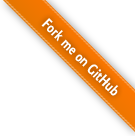A Diem project is made of modules.
Let's take the simple example of a webstore which contains products on categories.
Each category has a page containing the category name, and the list of products associated to this category.
Each product page contains the product description.
The schema.yml file looks like this:
Category:
columns:
name: { type: string(255), notnull: true }
body: { type: clob, extra: markdown }
Product:
columns:
category_id: { type: integer, notnull: true }
name: { type: string(255), notnull: true }
body: { type: clob, extra: markdown }
relations:
Category:
foreignAlias: Products
Modules are declared in config/dm/modules.yml
Content:
Store:
category:
model: Category
page: true
name: Category|Categories
components:
list:
show:
product:
parent: category
page: true
name: Product
components:
listByCategory:
filters: [ category ]
show:
Note that the modules start with an underscore letter, and that words are separated by an uppercase letter. This is a mandatory convention name "modulized".
With these two files, Diem is able to build a fully functional project.
This is the same modules.yml file, commented:
Content: # declare modules for the project
Store: # namespace, mainly used to structure the admin menu
# this has no meaning for Diem and follows no convention
# so we can use any name we want to
category: # declare the category module
model: Category # declare that the category module uses the Category model
# in this case this is not required,
# because module and model have the same name
page: true # declare that each Category record
# has a dedicated page on the front application
name: Category|Categories # human name shown in admin and front menus.
# As the plural is special for this word,
# we specify it after a |
components: # declare the module components
list: # the name starts with the "list" keyword
# so Diem assumes it is used
# to display a list of Category records
show: # the name starts with the "show" keyword
# so Diem assumes it is used
# to display a single Category record
The category module:
product: # declare the product module
# in the same "Store" namespace
page: true # declare that each Product record
# has a dedicated page on the front app
parent: category # declare that a product is child of a category
components: # declare the module components
listByCategory: # the name starts with the "list" keyword
# so Diem assumes it is used
# to display a list of Product records
filters: [ category ] # declare that this list is filtered by a category:
# it will display all the Product records
# for a given Category Record
show: # the name starts with the "show" keyword
# so Diem assumes it is used
# to display a single Product record
The product module:
The modules declaration is compiled, dumped to php, and stored in the cache directory.
You can see the dumped php code in cache/front/dev/config/config_dm_modules.yml.php
Here is an example that uses most possibilities:
product: # module key
parent: category # module parent's key
model: Product # linked to the Product model
page: true # each Product record has a page in front app
name: Product|Products # singular name|plural name
admin: true # visible in admin app
front: true # visible in front app
components:
listByCategory: # list of products for one category
filters: [ category ] # front list filters
cache: true # the _listByCategory.php template is cachable
# but varies on each page ( recommended )
show: # show one product
cache: static # the _show.php template is cachable,
# and never varies
showLittle: # also show one product, with another component and template
cache: false # the _showLittle.php template is never cached
Each time you declare a component in the modules.yml file, a specific widget is created for your project.
A component and a partial are created in the front module dir, and the widget appears in the front tool bar "Add" menu, in order to allow you to drag&drop it somewhere on a page.
Learn more about List widgets.
Questions and Feedback
If you need support or have a technical question, you can
The documentation is hosted on GitHub. Feel free to submit issues and patches!
